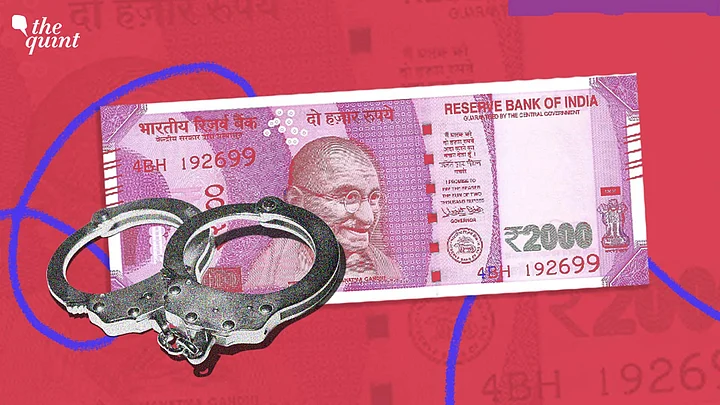The Delhi Liquor Scam investigation in 2022 led to widespread criticism of the Prevention of Money Laundering Act, 2002 (PMLA) and the powers of the Enforcement Directorate given under the Act. The Act aimed to prosecute money laundering activities involving projecting or claiming the proceeds of crime as untainted property. It entails claiming the proceeds of crime as untainted property subsequent to committing a predicate offence.
Due to its stringent nature, the act is pertinent to misuse. In a statement in Lok Sabha, Minister Nityananda Rai stated that in the last 10 years, 2014-2024, there have been 5297 cases filed by the Enforcement Directorate under the Act, and out of these cases only 40 have led to a conviction.
In Vijay Madanlal Chaudhary (2022), the Supreme Court upheld the constitutionality of twin bail conditions under section 45 of the Act. This section puts the burden of proof on the accused, turning the presumption of innocence over its head.
The twin bail conditions and Vijay Madanlal Chaudhary make it very difficult for the accused to get bail. The two conditions have been disputed in a court of law for their constitutionality as it has been misused widely to silence the Opposition leaders.
The Supreme Court's recent rulings on the granting of bail in cases filed under strict penal legislation have come as a welcome relief, given the collective unease over the repressive processes of our criminal justice system.
In the last few weeks, the Supreme Court has granted bail in three very detailed and freedom-centric orders. In Prem Prakash Vs Union of India, Manish Kumar Sisodia Vs Enforcement Directorate, and K Kavita Vs Enforcement Directorate, the court reaffirmed its focus on the doctrine of “Bail is a rule, Jail is an exception.” It is uncertain for how long the court will stick to this.
The Supreme Court made important observations on how trial courts and high courts handle granting bail under the PMLA in the Manish Sisodia Judgment. As far as bail goes, the court observed that the trial courts and the high courts sometimes play it safe, which might result in the accused being detained for a lengthy time without being given a chance to defend themselves. Though the law mandates that judges give due consideration to the prosecution's allegations, the court stressed that this need not result in an automatic refusal of bail.
In Sisodia's case, the court focused on granting bail as a rule, even if the statutory provisions say otherwise, since Article 21 stands over these provisions. Earlier Manish Sisodia was denied bail by the Delhi High Court, similarly to K Kavita’s case. Notably, the court stated that the phrase reasonable grounds for believing in Section 45 of the Act requires the court to determine if there is a genuine case against the accused based on the material collected during the investigation.
The court restated that the accused, who is being held under the PMLA, is not a person who can be considered as one operating with a free mind and that making such statements admissible against the maker would be extremely dangerous, as such a course of action would be contrary to all cannons of fair play and justice.
Apart from stringent bail conditions which have been widely discussed, the accused under the Act also face long-term detentions due to delays in trials. The Delhi Liquor Policy investigation started in 2022, which led to the arrest of Chief Minister Arvind Kejriwal (now granted bail), Dy Chief Minister Manish Sisodia, Minister Satyendar Jain, MP Sanjay Singh, and an array of other politicians and businessmen, has a substantial amount of evidence, including 493 witnesses and 37,000 pages of papers.
A similar matter was of Yes Bank CEO Rana Kapoor who was behind bars for almost the full term of his sentence if he was convicted, but his trial never started. Judicial independence has been called into doubt especially in situations when the accused is detained for long stretches of time before the trial even starts. In Prem Prakash (2022), the accused had been detained since 25 August 2022, but the trial had not yet started.
In addressing the circumstances surrounding Manish Sisodia's case, the Supreme Court noted that depriving the accused of his fundamental right to liberty as protected by Article 21 of the Constitution by keeping him in jail indefinitely while the trial was ongoing would be unfair. It was emphasised that a lengthy detention before a trial shouldn't serve as a form of punishment. It is important to remember that the Supreme Court in this instance had earlier denied bail to the accused, giving them the option to petition the court again if the trial proceeds at a snail's pace.
As it stands, Vijay Madanlal Chaudhary is pending its review in light of the validity of bail provisions and other provisions under the act. But the significance of these decisions lies not just in their undeniable constitutional correctness but also in the moral rectitude of the eminent judges who have upheld justice and law. These rulings, which are grounded in logic and the inviolability of basic rights, will strengthen public regard for the law in its broader role as a stabilising factor.
(Kumar Kartikeya is a legal researcher. This is an opinion piece and the views expressed above are the author’s own. The Quint neither endorses nor is responsible for the same.)
(At The Quint, we question everything. Play an active role in shaping our journalism by becoming a member today.)
